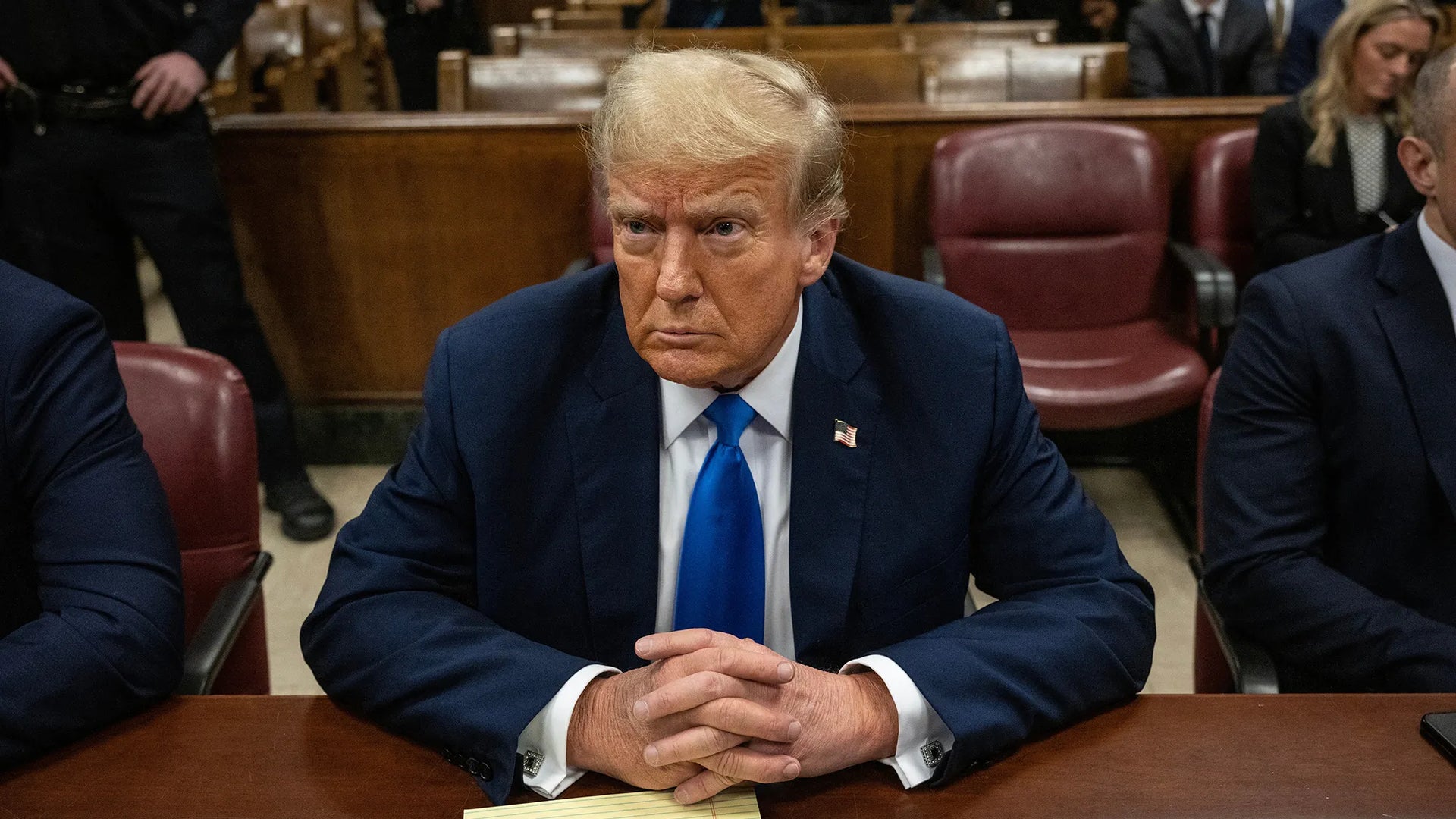
What Donald Trump Did: Key Actions and Decisions Analyzed

Early Life and Business Career
Donald Trump started his journey from his early education to building a business empire in real estate alongside a notable presence in the media and entertainment industry.
Education and Early Ventures
Donald Trump was born on June 14, 1946, in Queens, New York. He initially attended Fordham University before transferring to the Wharton School at the University of Pennsylvania, where he graduated in 1968 with a degree in economics.
His initial foray into business began during his college years, investing in Philadelphia real estate. Following graduation, he joined his father's real estate company, Trump Management. This laid the groundwork for his future business endeavors.
Expansion into Real Estate
After taking control of Trump Management, Donald Trump renamed it the Trump Organization and shifted the company’s focus to Manhattan. He was instrumental in high-profile projects such as the renovation of the Commodore Hotel into the Grand Hyatt New York and the development of Trump Tower on Fifth Avenue.
His ventures expanded into various real estate segments, including hotels, casinos, and golf courses. Notable properties include the Plaza Hotel in New York and the Mar-a-Lago estate in Florida.
Media Presence and Entertainment
Beyond real estate, Donald Trump carved out a significant presence in media and entertainment. He starred in the reality TV show The Apprentice, which debuted in 2004 and brought him widespread recognition.
Trump also authored several books including The Art of the Deal, which became a bestseller. Additionally, he was involved in beauty pageants like Miss Universe and Miss USA, further increasing his public profile.
Political Career and Presidency

Donald Trump's political journey includes a notable 2016 Presidential campaign, impactful policies, and significant controversies and impeachment proceedings.
2016 Presidential Campaign
In 2015, Trump announced his candidacy for the Republican nomination. Emphasizing an "America First" agenda, he focused on border security, renegotiating trade deals, and revitalizing American industry. He defeated 16 other Republicans, including established politicians like Jeb Bush. His opponent in the general election was Hillary Clinton.
Despite numerous controversies, he won the Electoral College with 304 votes to Clinton's 227, despite losing the popular vote. His slogan, "Make America Great Again," became iconic. Trump took office on January 20, 2017, with Mike Pence as his Vice President.
Key Policies and Actions
During his presidency, Trump enacted significant tax cuts through the Tax Cuts and Jobs Act of 2017. He focused on deregulation, rolling back many Obama-era regulations, particularly in the environmental sector.
On immigration, he aimed to build a wall along the Mexico-U.S. border and imposed travel bans on several predominantly Muslim countries. Economic policies saw a strong pre-pandemic economy with low unemployment rates. Trump's administration also appointed three Supreme Court justices: Neil Gorsuch, Brett Kavanaugh, and Amy Coney Barrett.
Controversies and Impeachment
Trump's presidency was marked by multiple controversies. He faced two impeachment trials. In December 2019, the House impeached him for abuse of power and obstruction of Congress regarding his interactions with Ukraine and Joe Biden.
In January 2021, after the Capitol riot, the House impeached him again for incitement of insurrection, making him the first president to be impeached twice. Trump was acquitted by the Senate both times. The COVID-19 pandemic also attracted criticism for his administration's response.
Use this knowledge to understand Trump's political career and the significant events that shaped his presidency.
Legal Conflicts and Criminal Investigations

Donald Trump has faced significant legal challenges, both during and after his presidency. These involve allegations regarding his business activities, as well as investigations into his actions post-presidency.
Business Dealings and Allegations of Fraud
Donald Trump's business dealings have been scrutinized for years. Prosecutors have brought multiple charges against him, accusing him and the Trump Organization of fraudulent activities. New York has been a focal point for these allegations, with charges ranging from falsifying business records to tax evasion.
The indictment against Trump for allegedly fraudulent practices marked a historic moment. The accusations claim that he inflated property values to secure loans while undervaluing them for tax benefits. This includes properties in places like Atlantic City and New York. Trump's legal team has consistently denied any wrongdoing, claiming the charges are politically motivated.
Post-Presidency Legal Challenges
After leaving office, Trump's legal troubles didn't end. He faced numerous investigations and prosecutions. One significant case involves allegations of mishandling classified documents. The Department of Justice, through a special counsel, indicted Trump, marking the first instance of a former president facing such charges.
Additionally, Trump's payment to Stormy Daniels to secure her silence about their alleged affair has been under scrutiny. This involved potential violations of campaign finance laws, with a grand jury in New York examining the evidence. Further, the House Select Committee investigated Trump's role in events leading up to and on January 6th, emphasizing his potential responsibility.
These ongoing legal battles demonstrate the complexity and breadth of the challenges Trump continues to face, with various courts, including those in Virginia and California, involved in resolving these high-profile cases.
Public Influence and Legacy

Donald Trump significantly shaped American politics and maintained a notable influence even after his presidency. His impact on the Republican Party and continuing support from a significant base showcase his lasting legacy in U.S. politics.
Impact on Republican Party and U.S. Politics
Donald Trump’s presidency redefined the Republican Party's identity. His unorthodox style and disregard for traditional political norms became a hallmark, attracting a new base of supporters. Trump's influence pushed the Republican Party further to the right on many issues, emphasizing a populist and nationalist agenda.
The deep polarization of American politics can partly be attributed to Trump's rhetoric and policies. During his term, Republicans largely rallied around his vision, creating a stark partisan divide, particularly evident in the 2020 election. Trump's two impeachments, his claims regarding the 2020 election, and the January 6 Capitol insurrection left an indelible mark on U.S. democracy and governance dynamics. His lifetime judicial appointees will continue to shape federal courts, affecting American policy for years.
Continued Support and Future Prospects
Trump's supporters remain arguably one of the most loyal voter bases. Despite controversies, his followers have continued to endorse him, making him the presumptive Republican nominee for the upcoming presidential election. Events like his rallies in Ohio and Nevada draw large crowds, underscoring his continued appeal.
Social media platforms like Twitter played a crucial role in maintaining his public presence even after extensive bans. Legal challenges and investigations, from hush money payments to inquiries by Fani Willis, have not diminished his political prospects. Figures close to Trump, like Ivanka Trump and John Eastman, remain influential within his orbit, signaling ongoing influence in politics and public discourse.
Trump’s non-conventional style and his strategic use of media have ensured that his public influence extends well beyond his time in office. His legacy, characterized by both controversial and transformative actions, continues to shape the political landscape today.
Frequently Asked Questions

This section covers the most frequently asked questions regarding Donald Trump's actions and their impact during his presidency. It addresses policy decisions, economic effects, foreign relations, judicial changes, immigration policy, and legislative achievements.
What are some notable actions taken by President Donald Trump during his tenure?
Donald Trump signed executive orders such as the one to withdraw from the Trans-Pacific Partnership. He also implemented a sweeping tax reform bill, officially known as the Tax Cuts and Jobs Act.
How did Donald Trump's policies impact the U.S. economy?
Trump's tax reform aimed to reduce corporate tax rates and cut individual taxes. The administration also focused on deregulation to boost business activities. The pre-pandemic period saw U.S. stock markets reach record highs.
What were the key foreign policy decisions made by the Trump administration?
The Trump administration withdrew the U.S. from international agreements like the Paris Climate Accord and the Iran nuclear deal. Trump engaged in direct diplomacy with North Korea's Kim Jong-un, holding several summits.
How did Donald Trump influence the judicial system of the United States?
Trump appointed three Supreme Court Justices: Neil Gorsuch, Brett Kavanaugh, and Amy Coney Barrett, which solidified a conservative majority. He also appointed numerous federal judges, reshaping the federal judiciary.
What were the main elements of Donald Trump's immigration policy?
The Trump administration focused on tightening immigration, including the attempt to build a wall along the U.S.-Mexico border. The "zero tolerance" policy led to the separation of families at the border. Trump also imposed travel bans on several predominantly Muslim countries.
What significant legislative achievements were accomplished during Donald Trump's presidency?
Key legislative achievements include the passage of the Tax Cuts and Jobs Act, which reduced taxes for corporations and individuals. Trump also signed the First Step Act, aimed at criminal justice reform, including reducing sentences for certain non-violent offenders.
